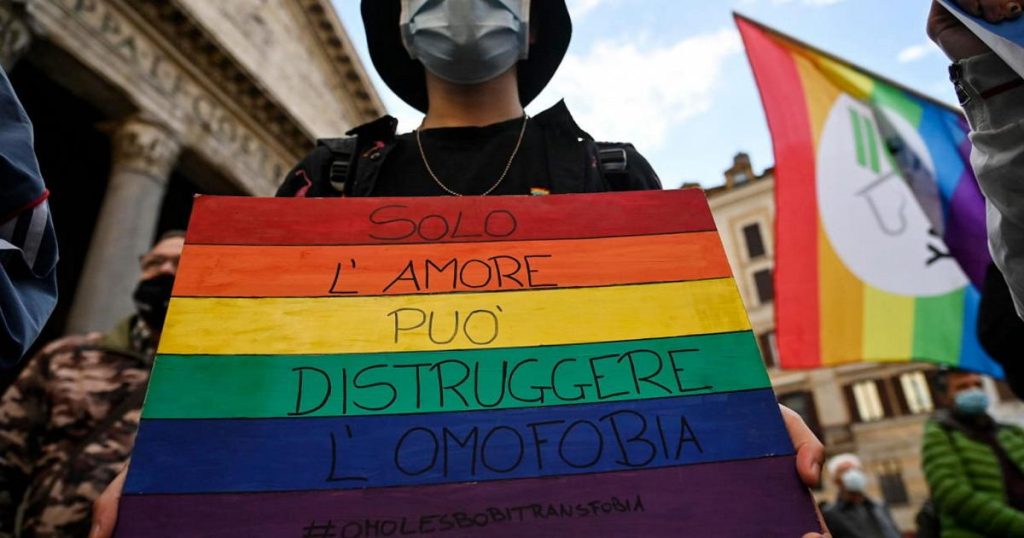Italy, along with eight other EU countries, did not sign the declaration in favor of European policies promoting the rights of LGBTQ+ communities that was presented by the Belgian presidency to all 27 EU member states. The other countries that did not sign the declaration were Hungary, Romania, Bulgaria, Croatia, Lithuania, Latvia, Czech Republic, and Slovakia. The declaration was prepared for the International Day Against Homophobia, Transphobia, and Biphobia. This decision came despite Italy’s previous adherence to a declaration against Homophobia, Transphobia, and Biphobia from the EU External Action Service and the 27 member states, in which they committed to implementing national strategies for LGBTQ+ people and supporting the appointment of a new equality commissioner.
According to sources from the Ministry of Family, led by Eugenia Roccella, the decision not to sign the declaration was made days ago. The Ministry stated that the declaration was “unbalanced on gender identity, essentially the content of the Zan law”, referring to legislation in Italy. Minister Roccella also suggested that “the left uses homophobia to hide its true goal, gender”. This position contrasts with that of Foreign Minister and Deputy Prime Minister Antonio Tajani, who had previously stated that “rights are inviolable”. The Italian President, Sergio Mattarella, warned that the country is not immune to acts of homophobia and spoke of “tears in democratic coexistence” and urged institutions to work towards an inclusive and respectful society. Prime Minister Giorgia Meloni also pledged the government’s commitment to combatting discrimination and unacceptable violence.
Opposition parties reacted harshly to Italy’s decision not to sign the declaration. The Democratic Party’s Elly Schlein expressed anger and shame towards the government’s choice, stating that it is unacceptable. Former Prime Minister Giuseppe Conte criticized the decision as aligning with the cultural model of Hungary’s Viktor Orban. Other opposition figures, such as Riccardo Magi and Ivan Scalfarotto, also condemned the decision, calling it reactionary and unacceptable. Alessandro Zan, whose legislation was referenced by the Ministry sources, criticized the government for continuing to violate the rights of LGBTQ+ individuals and accused them of hypocrisy for posting about LGBTQ+ rights on the Ministry of Education’s official channel.
The refusal to sign the declaration also led to criticism and disappointment from various political figures and LGBTQ+ rights activists. Street artist Andrea Villa created a mural depicting a kiss between footballers Thierry Henry and Cristiano Ronaldo to combat homophobia. This artwork serves as a powerful reminder of the importance of promoting acceptance and inclusivity in society. Despite the government’s decision, there is a strong pushback from civil society and opposition parties in Italy, emphasizing the need for continued advocacy and activism to protect the rights of LGBTQ+ individuals. As the debate continues, it is clear that issues of homophobia, transphobia, and discrimination against LGBTQ+ people remain significant challenges that require sustained efforts to address and overcome.


